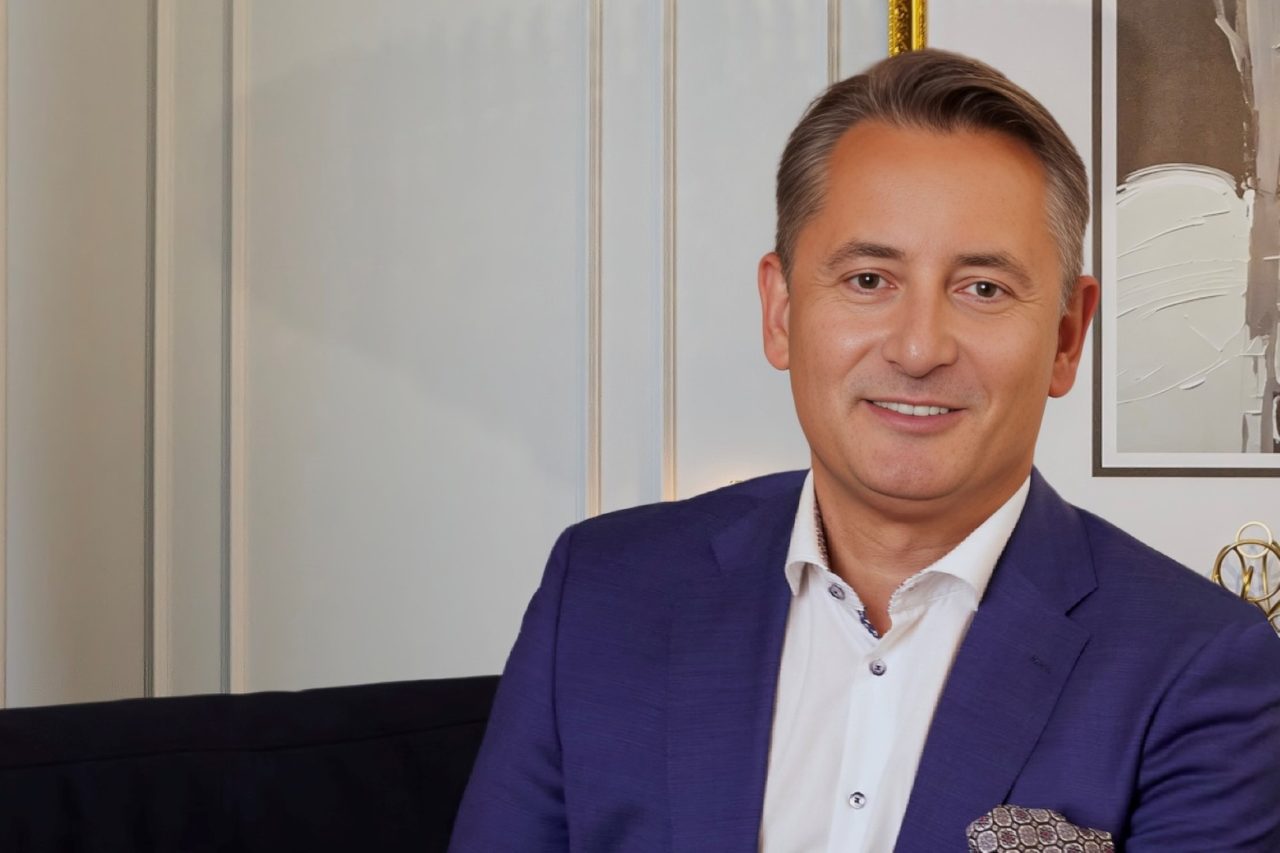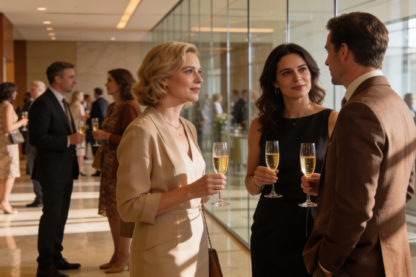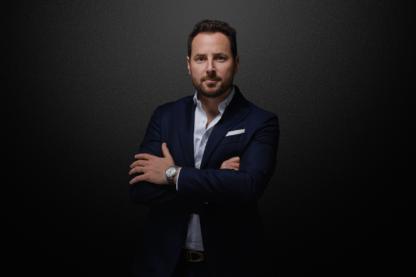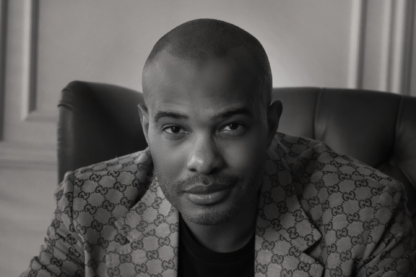In this exclusive conversation, Alexander Chetchikov, president of World Luxury Chamber of Commerce, sits down with Adrian Kołodziej (AK) — CEO of Luxury Media, publisher of Luxury Boutique magazine, and Managing Director of Vilea Property Boutique, a leading real estate agency specializing in Poland’s premium and luxury sector. With more than two decades of experience bridging refined design, lifestyle, and real estate, Adrian Kołodziej has become one of the key voices shaping Poland’s luxury narrative; a market rapidly emerging as a vibrant European destination for global brands, investors, and connoisseurs of excellence.
Alexander Chetchikov: Adrian, the name Luxury Boutique is becoming increasingly recognised internationally. Before we discuss the Polish market, could you share how your journey began and what motivated you to connect publishing and luxury real estate?
Adrian Kołodziej: My career has always been rooted in a fascination with beauty, architecture, and the way people express their ambitions through the spaces they inhabit. I began in real estate more than twenty years ago, focusing on premium homes in Warsaw at a time when the concept of “luxury property” barely existed here. What I discovered was that true luxury is never just about price or materials — it’s about identity, heritage, and experience. That understanding naturally evolved into publishing. I wanted Luxury Boutique to tell stories about craftsmanship, design, and lifestyle in a way that resonates with the new generation of affluent readers — people who travel, collect art, appreciate gastronomy, and who see Poland as part of a global cultural dialogue. The magazine became a bridge between business and beauty, between investment and inspiration.
AC: The global luxury industry has changed dramatically in the last decade. How has Poland positioned itself within this new landscape?
AK: The transformation has been extraordinary. A decade ago, Poland was rarely mentioned in discussions about the global luxury economy. Today, it’s a market that attracts both international investors and luxury brands seeking an audience that is sophisticated, aspirational, and increasingly well-educated about global trends. Warsaw has become the centre of that evolution — a city where fine dining, design studios, boutique fashion houses, and premium developers coexist with a confident cultural identity. We’ve seen remarkable growth in areas such as high-end hospitality, private clubs, art collecting, and, of course, real estate. The pandemic years accelerated a shift toward quality over quantity. Polish clients — many of whom are entrepreneurs or second-generation business owners — began to value privacy, craftsmanship, and longevity. Instead of chasing international labels, they started commissioning bespoke interiors, buying art, or investing in properties that reflect their personal philosophy.
AC: From your vantage point, what makes the Polish luxury market unique compared to its Western European counterparts?
AK: What sets Poland apart is its balance between tradition and new wealth. Western Europe has centuries-old luxury institutions; Poland, by contrast, is still in a creative phase — establishing its codes of refinement. That brings energy and authenticity. Our clients are curious; they want to learn, explore, and be part of something meaningful. There is less pretension and more discovery. Moreover, luxury in Poland is not purely about consumption; it’s often linked to self-realisation. Many of our clients made their fortunes within one generation, so for them, luxury is not inherited — it’s achieved. That makes it deeply personal. You see it in architecture, in fashion, in how people entertain at home. It’s a market defined by individuality rather than imitation.
AC: Real estate remains one of the strongest pillars of that transformation. How would you describe the evolution of Poland’s luxury property sector in recent years?
AK: The evolution has been profound. Ten or fifteen years ago, luxury property in Warsaw meant a good location and imported finishes. Today, it’s a complete lifestyle ecosystem. Developments in districts like Wilanów or Żoliborz combine architecture from top design studios with green surroundings, wellness spaces, and concierge services. The demand is not only domestic — we’re seeing growing interest from buyers in Western Europe, the Middle East and North America who recognise the value Poland offers: safety, stability, culture and excellent returns compared to traditional European capitals. In the ultra-prime segment, we observe continued resilience. The most prestigious residences — those with exceptional design, privacy, and architectural integrity — not only retain but increase their value. Poland is no longer an emerging market in luxury real estate; it’s a maturing one, comparable in ambition to Lisbon, Vienna, or Prague.
AC: You mentioned culture, and it’s clear that Luxury Boutique highlights this intersection between art, design, and business. How important is cultural sophistication to the growth of the luxury sector in Poland?
AK: It’s absolutely fundamental. Luxury without culture becomes empty very quickly. What’s happening now in Poland is a re-awakening of cultural confidence. After decades of focusing on economic growth, we’re rediscovering the power of aesthetics, heritage, and intellectual curiosity. There’s a new generation of collectors supporting Polish artists, architects blending modern design with historic contexts, and luxury brands partnering with local creatives to express authenticity. Luxury Boutique plays an active role in that ecosystem. We don’t just feature global brands — we showcase Polish excellence too: tailors, jewelers, watchmakers, interior designers. Many of them could easily compete on the international stage. The magazine aims to tell their stories in the same breath as we discuss Cartier or Bentley, because true luxury today is about meaningful coexistence, not hierarchy.
AC: The international investor is often interested in both financial and emotional returns. How would you characterise Poland’s attractiveness from an investment perspective within the broader luxury economy?
AK: Poland offers a compelling combination: economic stability, creative energy, and a growing luxury audience. For investors, this means opportunity across several sectors — not only real estate, but hospitality, fashion retail, art, and high-end services. Warsaw and Kraków are experiencing a renaissance of boutique hotels and private members’ spaces, while regions like Mazury and the Polish mountains are becoming destinations for luxury leisure projects. There’s also a psychological factor. Poland represents authenticity — a European market that still feels genuine, unspoiled, and full of potential. In a world saturated with global sameness, that’s very attractive. Investors who enter now are part of building a story, not just buying into an existing one.
AC: Sustainability, technology, and wellness are global forces reshaping the definition of luxury. How do they influence Polish clients and brands today?
AK: Profoundly. Sustainability is no longer a marketing term — it’s an expectation. Developers are integrating green roofs, energy-efficient systems, and materials with traceable origins. In fashion, we see smaller ateliers prioritising local production and timeless design. Even in publishing, we print on certified paper and highlight responsible consumption. Technology, meanwhile, has elevated service standards. Smart homes, virtual property tours, and AI-driven concierge — all these tools enhance convenience without replacing the human touch. And wellness has become the new expression of status. Clients are investing in homes with spa zones, private gyms, and gardens designed for mindfulness. The modern Polish luxury consumer values time, privacy, and balance more than ostentation.
AC: If you look ahead five years, what do you envision for Poland’s luxury landscape — and where will Luxury Boutique fit within that vision?
AK: I believe Poland will become one of the most interesting luxury markets in Europe and beyond. We will see stronger integration between international brands and local creative talent, more investment in design-driven architecture, and a growing appetite for experiences over possessions. As for Luxury Boutique, our role is to remain a curator of that transformation. We will continue to connect global perspectives with local authenticity, expand our English-language presence, and build partnerships with international institutions such as WLCC to position Poland within the world’s luxury narrative. My dream is for Poland to be perceived not only as a place to invest, but as a destination to experience refinement, creativity, and purpose.
AC: A final question – in one sentence, what would you say defines the essence of Polish luxury today?
AK: Polish luxury is the meeting point of ambition and authenticity — a modern confidence that draws from heritage, celebrates individuality, and believes that true sophistication is about how you live, not just what you own. Thank you, Adrian, for sharing your vision and insights into Poland’s evolving luxury landscape, a story of authenticity, creativity, and modern confidence.
For more information, visit www.luxuryboutiquemagazine.pl and www.vilea.pl.
Want to read more exclusives? Check out our news and insights: https://worldluxurychamber.com/insights-news/ & sign up for our newsletter here: https://worldluxurychamber.com/wlcc-community/





